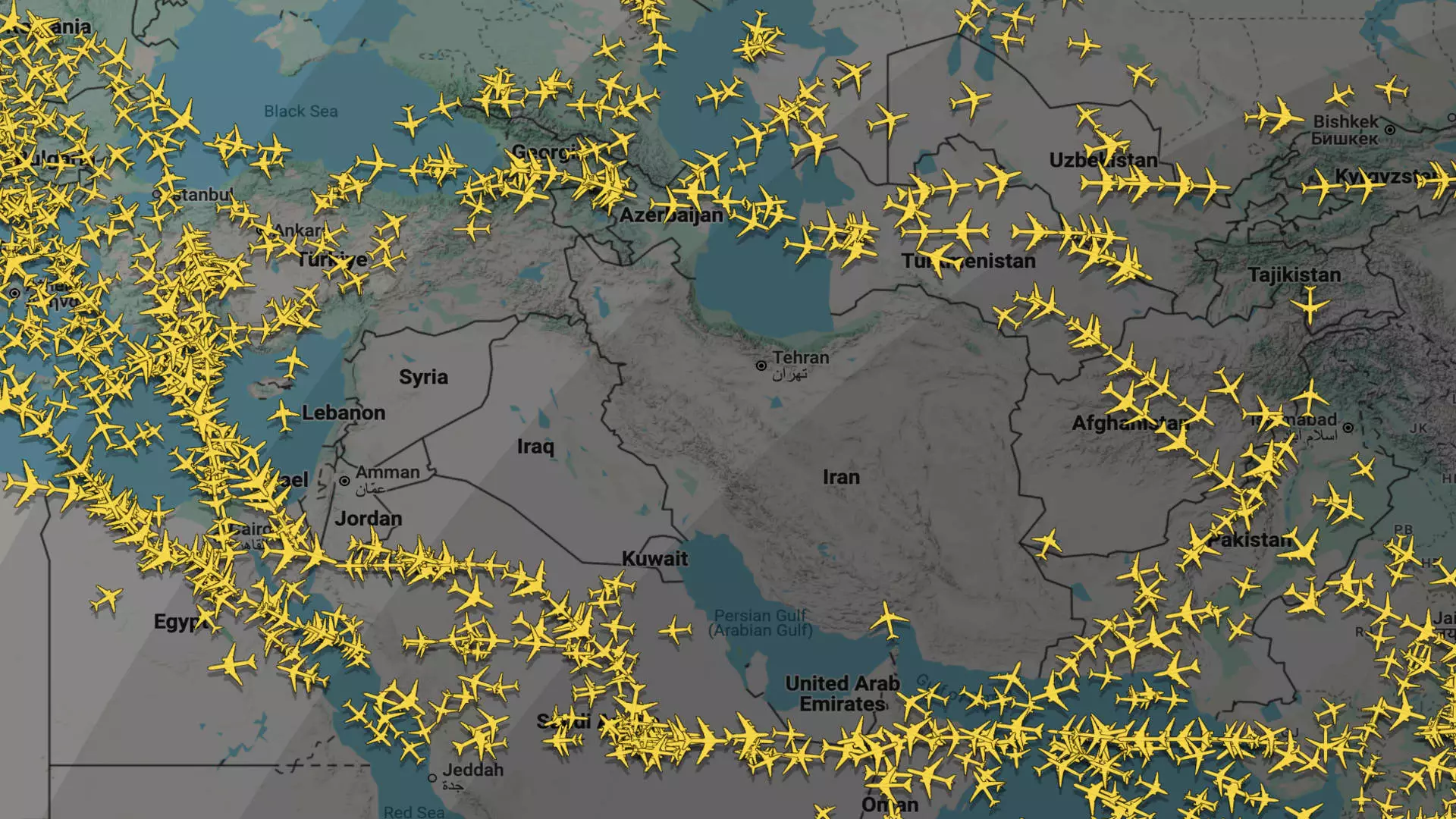In a region already marred by conflict, the latest military actions have plunged commercial aviation into chaos. The Iranian missile strike on a U.S. military base in Qatar on Monday set off a chain reaction, forcing over 20 flights to divert their paths to Doha and additional aircraft bound for Dubai to turn back. This alarming escalation of hostilities raises unsettling questions about the safety and stability of air travel in the Middle East. As chaos unfolds, airlines grapple with not just operational challenges, but also the overwhelming responsibility they have towards passenger safety.
Flight-tracking systems, such as Flightradar24, noted a temporary closure of airspace over the UAE, mirroring the decision by Bahrain to restrict its own airspace. This sudden shift is not only a logistical nightmare for airlines but also a painful reminder of the broader geopolitical tensions that dictate the rules of flight in a region fraught with peril. As passengers are left stranded or rerouted, the specter of military conflict looms ever larger over the skies.
Airlines React: Safety First or Business as Usual?
In response to the shifting landscape, airlines are resorting to varied tactics. Emirates Airlines made the calculated decision to reroute certain flights while reassuring customers that operations would continue as scheduled, albeit with paths that deliberately avoid any conflict zones. Air India, on the other hand, took a more drastic approach by halting all flights in and out of the region, a move that not only dampens the aviation sector but also impacts the travel plans of countless passengers. It is a sobering reminder that no amount of cost-cutting measures can equate to the perceived value of passenger safety.
British Airways opted to cancel flights to Doha through Wednesday, framing its decision with the mantra of prioritizing safety, a sentiment echoed by many international carriers as they navigate this complex landscape. While the evacuations and cancellations may be seen as prudent, they also draw criticism for suggesting that the airline industry can be dedicated to business as usual amidst the backdrop of conflict—a delicate balancing act that is increasingly challenging in a world where the lines between safety and profitability blur.
Cost Implications: The Price of Safety
The ongoing geopolitical tensions have resulted in closed airspace that extends beyond immediate conflict zones, sending waves of disruption rippling throughout the airline industry. With the Ukraine war already straining operational routes, airlines are compelled to chart longer, fuel-efficient paths to circumvent restricted airspaces. This diversion not only prolongs travel times but also significantly escalates operational costs, a burden that ultimately trickles down to consumers. Higher ticket prices, reduced service options, and longer wait times are all byproducts of a conservative yet necessary shift towards heightened security.
Furthermore, the challenge becomes even more pronounced when you consider the fluctuating reliability of routes. Airlines like Air France and Iberia have opted to postpone resuming services to certain destinations in the Middle East, reflecting an overarching wariness that extends beyond immediate cost considerations. This lack of certainty breeds an atmosphere of anxiety among travelers, who now face not only physical barriers but psychological ones as they contemplate the safety of their travel plans.
A Call for Responsibility: Prioritizing Passenger Trust
The unfolding situation presents a compelling case for the airline industry to redefine its priorities. Beyond the technicalities of air traffic management and operational costs, there is a critical need for airlines to foster trust and transparency with their customers. The fear and chaos stemming from military actions necessitate a conversation about responsibility in the airline sector. Beyond mere logistical reassurances, airlines must embody a commitment to passenger safety that resonates through their actions and communications.
As the dust settles on the latest flare-up in the Middle East, it will be essential for airlines to demonstrate their willingness to adjust their strategies in service of public safety. The balancing act is fraught with risks, but the stakes are too high for indifference. Passengers deserve an aviation landscape that prioritizes their well-being above all else, even in the face of monumental geopolitical crises that challenge our very notions of safety and security.

